Ned Roberts - Heavy Summer (2024) Hi-Res
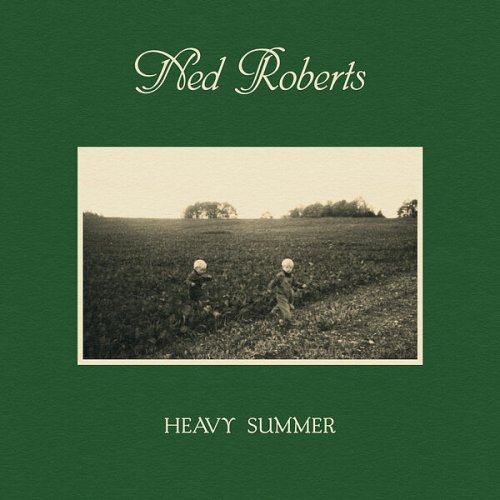
Artist: Ned Roberts
Title: Heavy Summer
Year Of Release: 2024
Label: Ned Roberts
Genre: Acoustic, Folk, Folk Rock, Singer-Songwriter
Quality: 320 / FLAC (tracks) / FLAC (tracks) 24bit-96kHz
Total Time: 34:58
Total Size: 81 / 190 / 717 Mb
WebSite: Album Preview
Tracklist: Title: Heavy Summer
Year Of Release: 2024
Label: Ned Roberts
Genre: Acoustic, Folk, Folk Rock, Singer-Songwriter
Quality: 320 / FLAC (tracks) / FLAC (tracks) 24bit-96kHz
Total Time: 34:58
Total Size: 81 / 190 / 717 Mb
WebSite: Album Preview
01. Play My Cards (3:32)
02. Down to the Edge (3:166)
03. Days into Days (3:58)
04. Songs of Spring (3:26)
05. Losing Sight (3:13)
06. Halfway from Reason (2:44)
07. Another Record Round (3:42)
08. Morning Meets the Rain (2:46)
09. Tomorrow in Time (3:40)
10. The Breakers (4:41)
Heavy Summer is London-based Ned Roberts’ fifth album. Produced by and featuring Luther Russell, Jason Hiller on bass, David Ralicke on cor anglais, and Sarabeth Tucek providing backing vocals, it finds Roberts in a ruminative fingerpicked mood. It is a pastoral folk album with gentle Laurel Canyon musical breezes and continuing echoes of Nick Drake, James Taylor, and Tim Hardin.
There’s an ebb and flow between struggle and calm in the opening track, Play My Cards, captured in the line “Take a late turn/I can’t quite find/Oh I’ve wandered so long/By the morning I’m done/And rest on the shore” not to mention some evocative imagery such as “Red flowers bloom/On the dusty wheel”, which in my mind conjures up blisters after hours on the road gripping the wheel, with a sense of weariness and salvation in the final “the lines that I’ve drawn/That served me before/The edges are worn/There through the storms and the tides/You brighten my skies/You’re there by my side”.
Musically, things don’t depart far from that initial setting, Down to the Edge offering a slightly slow waltzing, bluesy sway that, through cloud-watching, again speaks of a similar tranquil stasis (“I’ve got a million different reasons/And nothing much to do/Just watch that alabaster white/On those rolling banks of blue/And think for a minute/How to swim my way to you”) and of the clarity that perspective brings (“Well if you pick apart the pieces/The puzzle just explodes/But seen from a distance/Well there’s nothing much to note”).
Time passing is a recurring motif, most obviously so on Days Into Days, which, shifting from picking to a strum and one of the relatively more muscular arrangements with the cor anglais, has him musing, “I’m young and I’m old/I’m living and I’m dying”, the flow between despondency and hope again surfacing with “It’s getting harder and harder/To take the black from the night/We all need illusions to hold on/A sense of serenity from the breaking dawn” and “I find myself/In a white walled room/The air is collapsing now/But there are you/Soft words upon your tongue/Your hand upon my head/A calm evocation/Of what lies ahead”.
Returning to a sparser arrangement, loss underpins Songs of Spring (“Where are the songs of spring?/For the morning frost is settling in past its prime/She waits on a word from him/But the silence is the most deadly thing that she’s heard”), contrition (“She steps outside to see/Her gentleman on his knees in the snow and he cries/I’m so sorry/For not playing it straight/I’ve been out of my mind/For days and days and days”) offset by emotional distance (“She looks down upon him/But she does not feel what she wanted to feel at all/Your words are empty/They don’t mean a thing/They’ve lost their meaning/‘cross the water and the waves and the wind”).
The spirit of Leonard Cohen hovers over the keys-led Losing Sight, another number about wanting to break through a mental fog (“I’m losing sight/Of what it is that I want/You turn round to tell me/I forget it of course…Don’t want to lie in the dark/Want to live in the open/Watch the turning of days/Into wisdom or none/The rise and the fall/I want to lie in your arms/With no sense and no thought/Will it lessen the load?/Will it steady the course?”) and escape into the calm (“I want to get out of this city/And head down to the ocean/To sink in the sand/With the rock and the roll/I want to push back the tide/I want to hold back the time/Want to feel all the rhythm/Want to write all the rhyme”).
That seam of turmoil is exposed again on the introspectively picked Halfway From Reason as he plaintively sings, “I’m falling apart/Try as I might/I’m just losing my mind/Lend me some lines/That trip from the tongue/Spare me a thought/For the loves that we’ve lost”, another number that employs dawn as an image of recovery.
James Taylor could be the musical touchstone for the slow walking drums rhythm of Another Record ‘Round, another juxtaposition of resignation (“Maybe all there is to say/Has already been said/Maybe all I’ve left to find/I’ve already found/Maybe the breaking that I fear/Well I’ve already felt”), hope (“I’m gonna pick apart the roots/Unravel the string/The sharp edge and the doubt/Spin another record ‘round”) and acceptance (“Maybe the sadness that I hold/Is always unknown/Why should it matter now/How we can’t be made anew”). The imagery of nature, water and wind in particular, as a healing force from stress is another constant, resurfacing in the circling fingerpicked pattern of Morning Meets The Rain, a song that again takes him to the coast and the sea.
He unpacks melancholic harmonica for the strummed penultimate Tomorrow In Time, again seeking the refuge of the time between (“There’s the sun going up/There’s the sun going down”) and the calm of stasis (“I want to find the place/Where nothing comes to pass/The stillness is the point of it/There’s nothing through the glass”), humming into the organ-coloured reflectiveness of “See the field of flowers set alight/I grew up not far from here/Become the birds, the unseen flight”.
It ends back on the physical and metaphorical shore (Lissos in Crete, to be precise) for The Breakers, Tucek on harmonies, caught again between choosing action and inaction (“Should I lie between the breakers/Or lift myself from the sea bed?/Should my nights just brace for speaking /Or keep their stillnesses unsaid?”), of wanting to hold the moment (“I don’t want to come back down/Lie with me ‘til the stars fade out”) but acknowledging that things move on (“You cannot stay, I know I know/Time shifting through old patterns/There’s no resolving, no repose”) as it fades away into the mists of metaphor (“Don’t ride the rails without me/I’m waiting on the midnight train/The calm, the quiet astound me/All in the temper of a day”).
An album woven from the threads of searching for something just beyond reach, regret, ageing, creative expression, childhood, and reflection, it’s a meditative and quietly absorbing listening experience. Perhaps best savoured in a summery bucolic haze, it is equally capable of soundtracking the fading lights of a dimming day.
There’s an ebb and flow between struggle and calm in the opening track, Play My Cards, captured in the line “Take a late turn/I can’t quite find/Oh I’ve wandered so long/By the morning I’m done/And rest on the shore” not to mention some evocative imagery such as “Red flowers bloom/On the dusty wheel”, which in my mind conjures up blisters after hours on the road gripping the wheel, with a sense of weariness and salvation in the final “the lines that I’ve drawn/That served me before/The edges are worn/There through the storms and the tides/You brighten my skies/You’re there by my side”.
Musically, things don’t depart far from that initial setting, Down to the Edge offering a slightly slow waltzing, bluesy sway that, through cloud-watching, again speaks of a similar tranquil stasis (“I’ve got a million different reasons/And nothing much to do/Just watch that alabaster white/On those rolling banks of blue/And think for a minute/How to swim my way to you”) and of the clarity that perspective brings (“Well if you pick apart the pieces/The puzzle just explodes/But seen from a distance/Well there’s nothing much to note”).
Time passing is a recurring motif, most obviously so on Days Into Days, which, shifting from picking to a strum and one of the relatively more muscular arrangements with the cor anglais, has him musing, “I’m young and I’m old/I’m living and I’m dying”, the flow between despondency and hope again surfacing with “It’s getting harder and harder/To take the black from the night/We all need illusions to hold on/A sense of serenity from the breaking dawn” and “I find myself/In a white walled room/The air is collapsing now/But there are you/Soft words upon your tongue/Your hand upon my head/A calm evocation/Of what lies ahead”.
Returning to a sparser arrangement, loss underpins Songs of Spring (“Where are the songs of spring?/For the morning frost is settling in past its prime/She waits on a word from him/But the silence is the most deadly thing that she’s heard”), contrition (“She steps outside to see/Her gentleman on his knees in the snow and he cries/I’m so sorry/For not playing it straight/I’ve been out of my mind/For days and days and days”) offset by emotional distance (“She looks down upon him/But she does not feel what she wanted to feel at all/Your words are empty/They don’t mean a thing/They’ve lost their meaning/‘cross the water and the waves and the wind”).
The spirit of Leonard Cohen hovers over the keys-led Losing Sight, another number about wanting to break through a mental fog (“I’m losing sight/Of what it is that I want/You turn round to tell me/I forget it of course…Don’t want to lie in the dark/Want to live in the open/Watch the turning of days/Into wisdom or none/The rise and the fall/I want to lie in your arms/With no sense and no thought/Will it lessen the load?/Will it steady the course?”) and escape into the calm (“I want to get out of this city/And head down to the ocean/To sink in the sand/With the rock and the roll/I want to push back the tide/I want to hold back the time/Want to feel all the rhythm/Want to write all the rhyme”).
That seam of turmoil is exposed again on the introspectively picked Halfway From Reason as he plaintively sings, “I’m falling apart/Try as I might/I’m just losing my mind/Lend me some lines/That trip from the tongue/Spare me a thought/For the loves that we’ve lost”, another number that employs dawn as an image of recovery.
James Taylor could be the musical touchstone for the slow walking drums rhythm of Another Record ‘Round, another juxtaposition of resignation (“Maybe all there is to say/Has already been said/Maybe all I’ve left to find/I’ve already found/Maybe the breaking that I fear/Well I’ve already felt”), hope (“I’m gonna pick apart the roots/Unravel the string/The sharp edge and the doubt/Spin another record ‘round”) and acceptance (“Maybe the sadness that I hold/Is always unknown/Why should it matter now/How we can’t be made anew”). The imagery of nature, water and wind in particular, as a healing force from stress is another constant, resurfacing in the circling fingerpicked pattern of Morning Meets The Rain, a song that again takes him to the coast and the sea.
He unpacks melancholic harmonica for the strummed penultimate Tomorrow In Time, again seeking the refuge of the time between (“There’s the sun going up/There’s the sun going down”) and the calm of stasis (“I want to find the place/Where nothing comes to pass/The stillness is the point of it/There’s nothing through the glass”), humming into the organ-coloured reflectiveness of “See the field of flowers set alight/I grew up not far from here/Become the birds, the unseen flight”.
It ends back on the physical and metaphorical shore (Lissos in Crete, to be precise) for The Breakers, Tucek on harmonies, caught again between choosing action and inaction (“Should I lie between the breakers/Or lift myself from the sea bed?/Should my nights just brace for speaking /Or keep their stillnesses unsaid?”), of wanting to hold the moment (“I don’t want to come back down/Lie with me ‘til the stars fade out”) but acknowledging that things move on (“You cannot stay, I know I know/Time shifting through old patterns/There’s no resolving, no repose”) as it fades away into the mists of metaphor (“Don’t ride the rails without me/I’m waiting on the midnight train/The calm, the quiet astound me/All in the temper of a day”).
An album woven from the threads of searching for something just beyond reach, regret, ageing, creative expression, childhood, and reflection, it’s a meditative and quietly absorbing listening experience. Perhaps best savoured in a summery bucolic haze, it is equally capable of soundtracking the fading lights of a dimming day.
![Waldeck - The Moon and the Orient (2024) [Hi-Res] Waldeck - The Moon and the Orient (2024) [Hi-Res]](https://www.dibpic.com/uploads/posts/2024-06/1718463477_71yxgjhxwl__ac_sl1500_.jpg)
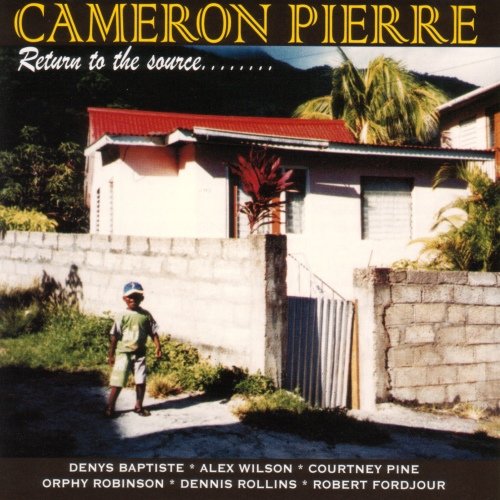
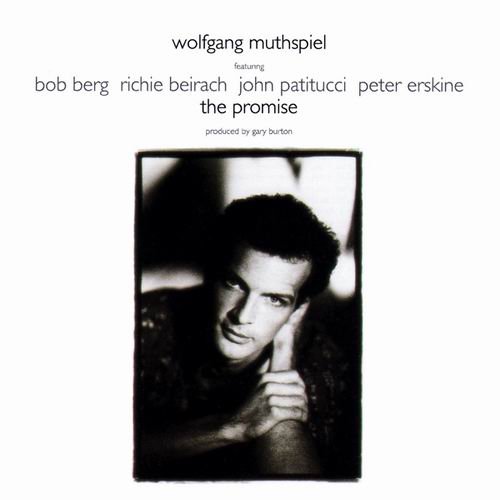
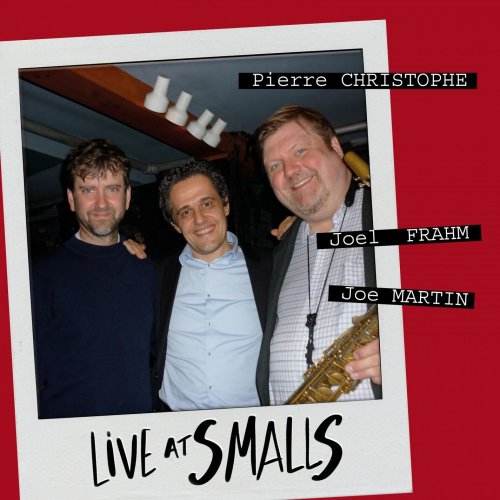
![Rosario Giuliani - "Logbook" Live at Sounds (2024) [Hi-Res] Rosario Giuliani - "Logbook" Live at Sounds (2024) [Hi-Res]](https://www.dibpic.com/uploads/posts/2024-06/1718341653_rosario-giuliani-logbook-live-at-sounds-2024.jpg)
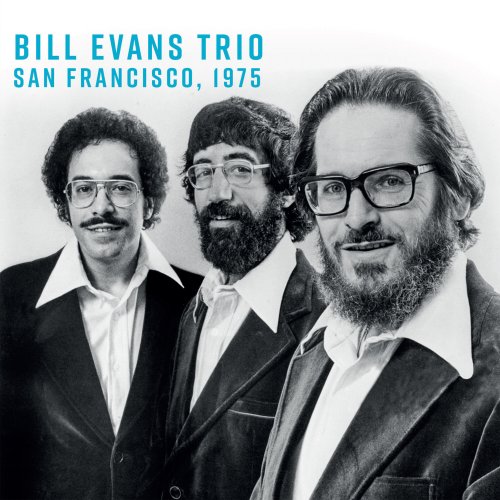
![Something Else! featuring Vincent Herring - Soul Jazz (2024) [Hi-Res] Something Else! featuring Vincent Herring - Soul Jazz (2024) [Hi-Res]](https://www.dibpic.com/uploads/posts/2024-06/1718262586_synjg1kohs0ac_600.jpg)
![Bill Evans Trio - Live In New Jersey 1971 (Live) (2024) [Hi-Res] Bill Evans Trio - Live In New Jersey 1971 (Live) (2024) [Hi-Res]](https://www.dibpic.com/uploads/posts/2024-06/1718341010_bill-evans-trio-live-in-new-jersey-1971-live-2024.jpg)
![Joshua Constantine - Soul Project Vol. II: Mercy, Hallelujah! (2024) [Hi-Res] Joshua Constantine - Soul Project Vol. II: Mercy, Hallelujah! (2024) [Hi-Res]](https://www.dibpic.com/uploads/posts/2024-06/1718436010_folder.jpg)